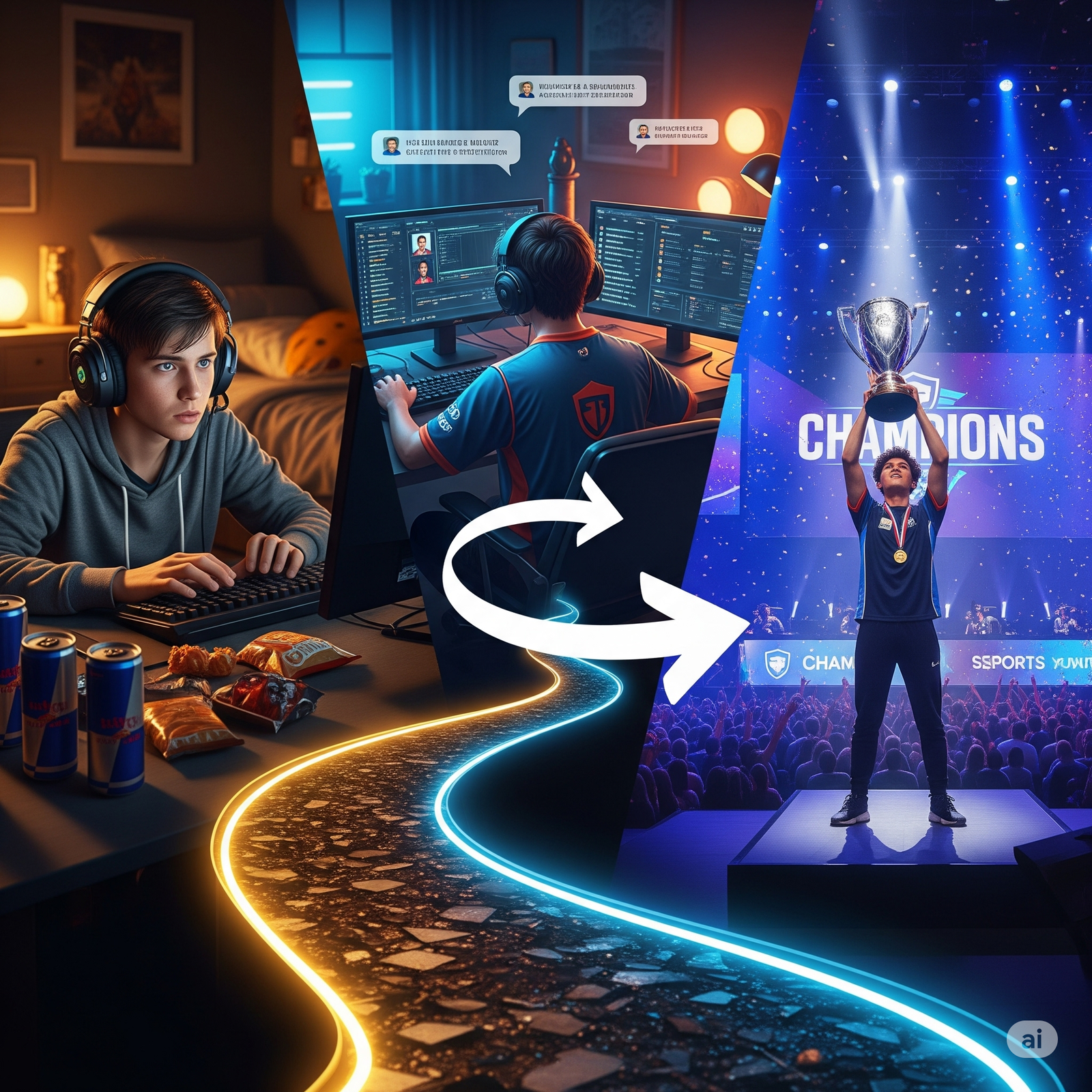Becoming a professional gamer is a challenging but rewarding path that requires immense dedication, skill, and a strategic approach. Here’s a breakdown of the key steps and considerations:
1. Find Your Motivation and Pick Your Game:
- Passion is Key: True success comes from a genuine love for the game and the competitive spirit.
- Strategic Game Selection: Choose a game with a thriving esports scene and a large, dedicated player base (e.g., League of Legends, Dota 2, Counter-Strike: Global Offensive, Valorant, Fortnite). While established games offer robust infrastructure and lucrative prizes, up-and-coming games might offer more opportunities for new players to make a name for themselves.
2. Master the Game:
- Intensive Practice: Professional gamers often train 8+ hours a day for years, mastering every aspect of their chosen game, including core mechanics, strategies, characters, and maps.
- Continuous Improvement: Actively seek to improve by recording and analyzing your gameplay, identifying mistakes, and learning from defeats.
- Stay Updated: Keep up with game updates, balance changes, and evolving strategies.
3. Join the Community and Network:
- Engage Online: Participate in forums, Reddit communities, and Discord servers to discuss the game, learn new techniques, and find practice partners.
- Climb the Ranks: Play in ranked modes to get matched against other skilled players and increase your visibility to scouts.
- Attend Events: Go to conventions, LAN events, and gaming expos to meet other players, coaches, and scouts in person.
4. Participate in Tournaments:
- Amateur Competitions: Start with online platforms like FACEIT, ESL Play, and Battlefy to test your skills and gain competitive experience.
- Gain Recognition: Performing well in smaller tournaments can get you noticed by teams, managers, and sponsors.
- Pro Leagues: Many professional leagues have open qualifiers, offering a chance to break into the professional scene.
5. Join a Team:
- Teamwork and Communication: Being part of a team is crucial for developing essential esports skills like coordination and communication.
- Finding a Team: Look for local amateur or semi-professional teams recruiting new talent. Websites like TeamTavern and Curry.gg can help you find teammates or teams looking for players.
- Form Your Own: If finding a team is difficult, consider forming your own to gain experience and visibility.
6. Build Your Online Presence (Streaming and Content Creation):
- Showcase Your Skills: Stream your gameplay on platforms like Twitch and YouTube to build a following and connect with other players.
- Content Strategy: Think of streaming as a recording phase for creating multiple content assets (clips, long-form videos, shorts). Consistent streaming (e.g., 3 times a week, 3-4 hour sessions) can help build an audience.
- Essential Equipment: Invest in a powerful gaming PC, stable internet connection (wired is preferred), a high-quality webcam, and a good microphone.
7. Train Like an Athlete (Physical and Mental Health):
- Physical Fitness: Despite being sedentary, esports requires physical stamina and mental clarity. Incorporate regular exercise (cardio, strength training, stretching) to improve posture, reduce stress, and prevent injuries like eye fatigue, neck/back pain, and wrist/hand pain.
- Nutrition and Sleep: Maintain a healthy diet, stay hydrated, and ensure 7-9 hours of quality sleep for optimal reaction time and cognitive function.
- Mental Resilience: Competitive gaming is mentally exhausting. Practice stress management techniques like meditation, deep breathing, and visualization. Take regular breaks (10-15 minutes every 90 minutes) to avoid burnout.
- Ergonomics: Use an ergonomic setup to prevent injuries.
- Coaching: Many professional players credit coaches with helping them reach the next level by analyzing gameplay, providing feedback, and suggesting improvements. Esports academies and coaching programs offer structured training and holistic development.
8. Seek Professional Opportunities:
- Open Tryouts: Some esports organizations hold open tryouts for aspiring players.
- Esports Organizations: If you gain significant recognition, you might be approached by esports teams or sponsors who can offer support, training facilities, and a salary. Always review contracts carefully.
The road to becoming a pro gamer is demanding, requiring not only exceptional gaming skill but also discipline, strategic thinking, and a commitment to overall well-being.








